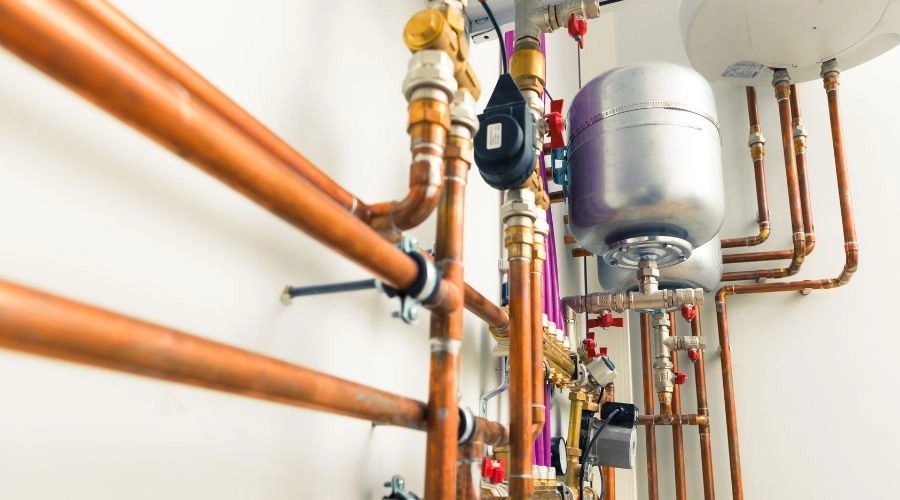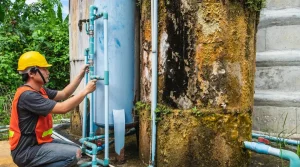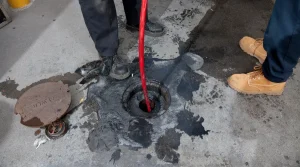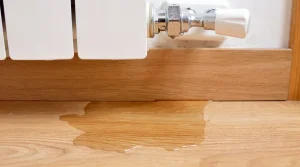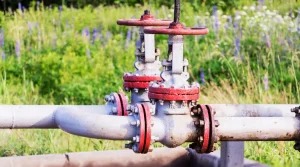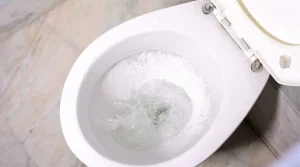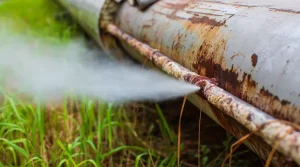House repiping is a major but necessary investment that can prevent leaks, water damage, and health hazards caused by outdated plumbing. If your home has aging pipes or you’re experiencing persistent plumbing problems, repiping may be the most effective long-term solution. This guide covers the real cost of house repiping, key factors that affect pricing, and what homeowners in North Bergen, NJ, should expect.
Why House Repiping May Be Necessary
Many homes in North Bergen built before the 1990s used galvanized steel, iron, or even lead pipes. These materials corrode over time, leading to water discoloration, pressure problems, and serious health risks. Repiping replaces these old systems with modern materials that offer better performance, safety, and reliability. It’s not just a repair—it’s a full upgrade to your home’s plumbing infrastructure.
Key Cost Factors in House Repiping
The cost of house repiping varies widely based on the home’s size, pipe material, labor, and permit requirements.
For smaller homes around 1,500 square feet, repiping may start at approximately $6,000. Medium-sized homes of 2,000 square feet can expect costs between $8,000 and $15,000. Larger homes with 3,000 square feet or more may face costs exceeding $20,000. Complex layouts with multiple bathrooms or kitchens can also raise labor time and material needs.
Labor is another important factor. In North Bergen, skilled plumbers charge between $75 and $150 per hour. Permit fees—required to ensure your repiping work complies with local regulations—range from $50 to $500, depending on your municipality and project scope.
Choosing the Right Pipe Material
The material you choose for your new plumbing system plays a major role in determining both the cost and long-term performance.
Copper is considered the most durable material and is known for its resistance to bacteria. However, it comes at a premium, typically costing between $2 and $4 per linear foot. In homes with copper pipes, total repiping costs can exceed $20,000 due to the price of both materials and labor.
PEX (cross-linked polyethylene) is a flexible and budget-friendly alternative. It costs between $0.50 and $2 per foot and is ideal for indoor use. PEX is resistant to freezing and easier to install than copper, which can reduce labor costs significantly.
CPVC (chlorinated polyvinyl chloride) is another cost-effective choice, priced around $1 per foot. While it’s affordable and corrosion-resistant, it’s not as durable as copper or PEX and may become brittle in cold climates.
Methods of House Repiping
The repiping method chosen for your home can affect both cost and the level of disruption to your property.
Traditional repiping involves opening walls and floors to remove and replace the old pipes. While thorough, it is labor-intensive and can increase the total cost. After the plumbing work is done, you may also need to budget for wall and flooring repairs.
Trenchless repiping is a modern alternative that uses techniques like pipe bursting or pipe lining. These methods minimize damage to your home and speed up installation. Although not suitable for every home, trenchless methods can save money on post-project restoration and are especially helpful when the pipes are buried underground.
Full vs. Partial House Repiping
When considering house repiping, homeowners often ask whether they should repipe the entire home or only specific sections.
Full house repiping replaces all existing pipes and ensures consistent water pressure and system reliability. This is especially recommended if your pipes are made of galvanized steel or lead.
Partial repiping is sometimes chosen for budget reasons, but it can lead to uneven performance, mismatched materials, and future plumbing issues. If one section of your piping system is failing, it’s likely the rest will follow.
Cost Breakdown by Material
To give you a clearer picture:
- Copper pipes may cost $8,000 to over $20,000 to install in a full repiping project.
- PEX systems usually range from $4,000 to $15,000 depending on home size.
- CPVC installations typically fall between $3,000 and $12,000.
These prices include both materials and labor.
Is House Repiping Worth the Investment?
While repiping is a significant expense, it’s a worthwhile investment for long-term savings and peace of mind. Old pipes can leak, burst, or contaminate your water—issues that often result in expensive emergency repairs and potential damage to your property.
By upgrading your plumbing system, you can:
- Ensure a clean, safe water supply
- Improve water pressure
- Reduce the need for constant maintenance
- Boost your home’s resale value
Frequently Asked Questions About House Repiping
How do I know if my house needs repiping?
You may notice low water pressure, rusty or discolored water, frequent leaks, or visible corrosion on exposed pipes. These are all signs it’s time to repipe.
Can I live in my home during a repiping project?
Yes. Most plumbers work in sections, ensuring your water remains available in part of the home while work is completed in another.
How long does it take to repipe a house?
A complete repiping job typically takes between 2 and 7 days, depending on the size of your home and the complexity of the plumbing.
How often should a house be repiped?
Most piping materials last 20 to 50 years. Regular inspections can help you determine when it’s time for an upgrade.
What’s the best material for house repiping?
PEX is ideal for most homeowners due to its affordability and ease of installation. Copper is a great long-term investment if you’re looking for durability and are willing to spend more upfront.
Conclusion
Repiping your house isn’t just about solving plumbing problems—it’s about upgrading your entire water system for safety, performance, and peace of mind. The upfront cost may seem high, but the long-term benefits far outweigh the investment.
If you’re considering house repiping in North Bergen, NJ, BJC Plumbers North Bergen can walk you through the process, provide a detailed estimate, and ensure the job is done right. Contact us today to get started with a consultation.

